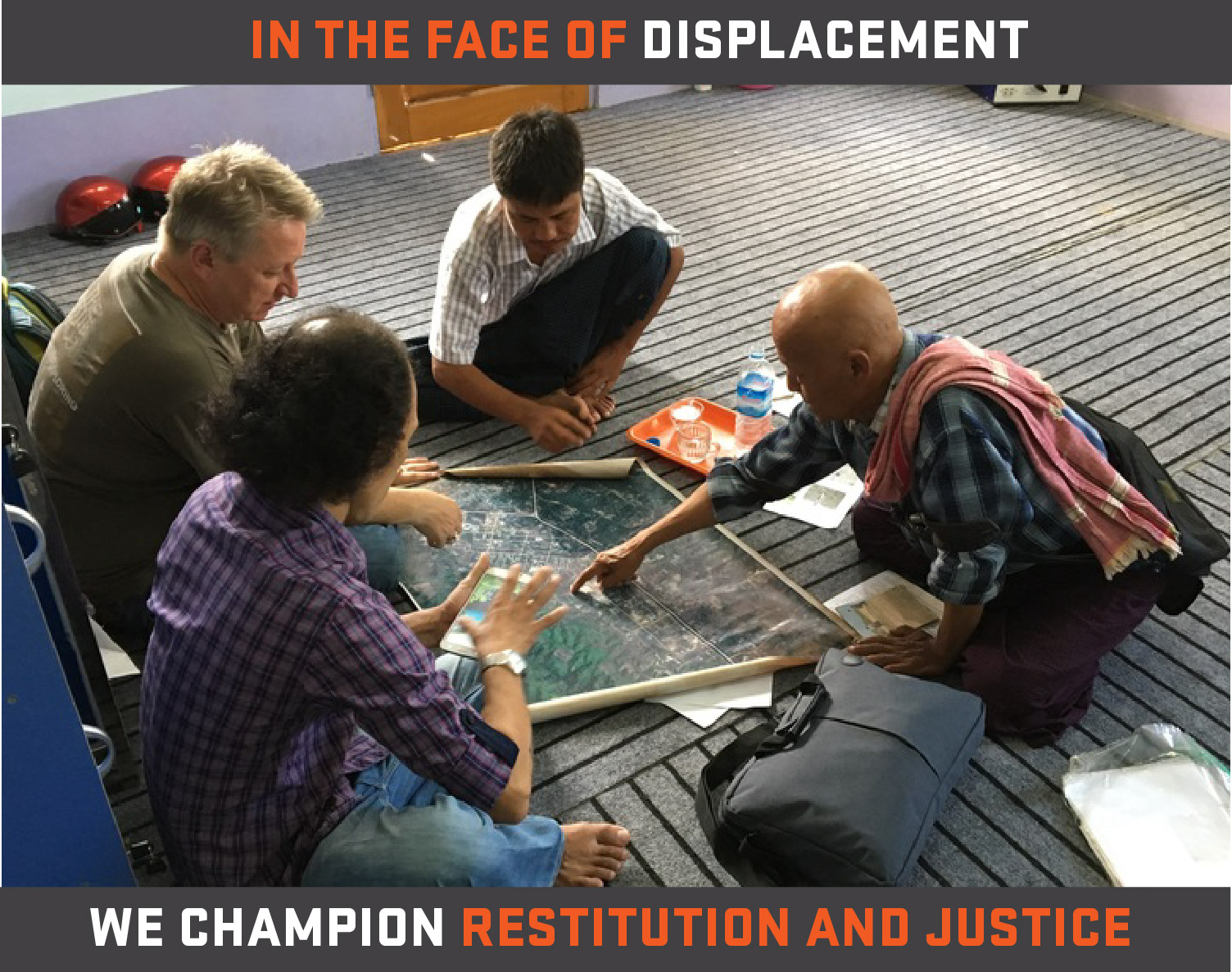This article was published more than 8 years ago.

As the Southeast Asia Program Officer for the Fund, it’s my job to provide support and guidance, and to learn from our grantees in Burma, Thailand, and the Philippines. Because I live in the region, I have the opportunity to meet grantees where they work and hear from the people they serve.
Just last month I had the chance to meet with one of the Fund’s grantees, an organization called Olive Branch, and hear the stories of 15 brave men demanding rights to their land and livelihood in central Burma. Companies that are supported by the military often seize land from farmers for various resource extraction ventures – displacing those who live and work on the land and ultimately stripping rural communities of their homes, farms, and means of survival. Olive Branch educates farmers on the rights they are afforded under Burmese law and assists them as they take corporations to court, organize marches, and much more.
When I asked Min Min, the Executive Director of Olive Branch, how he would describe his work, he said “We help local people to help themselves in defending and claiming their fundamental rights and freedoms…our ultimate goal is that local people take an active role in defending and promoting their own rights.”
Min Min took me to Kyar Inn Village, home to 87 families who have been displaced by dam projects and teak plantations. In the late 1990s, local authorities decided to build a dam to facilitate irrigation in the area. After being told their land would be under water, villagers were evacuated and promised access to homes with electricity, drinking water, and land to farm. Not only were the villagers forced to build their own homes, but it turned out that the land they had left was not in fact threatened by flooding.
Farmers and their families were allowed to return to their land in the early 2000s – but this victory was short-lived. In 2008, a development company decided to build a teak plantation on land that was being farmed by the villagers, encroaching on the village boundaries and squeezing farmers off the land they had returned to. The company fined the villagers, demanding money and forced labor, and made them leave their own land to prepare for the plantation.
After twenty years of broken promises and abuse, the farmers decided to fight back and demand the right to keep their land. With the help of Olive Branch, the Kyar Inn villagers studied tactics for reinstating their land-use rights and protecting their livelihoods. In 2012 they held a protest, wrote appeal letters, and even took the teak plantation to court. Before they met Min Min from Olive Branch, farmers from Kyar Inn, who said they considered themselves “blind and deaf,” had been uninformed and ultimately defenseless in the efforts to reclaim their homes and livelihoods.
Despite the promise of democratic transition in Burma, the farmers that Olive Branch works with see a common thread running through the history of their land struggles: powerful people ignoring the rights of their communities and exploiting the land with impunity. “Without resolving past injustices, we have to live in fear. “We want justice,” said one farmer.
The fight for justice is coming at a very high cost. During their protest and court case, many villagers went into extreme debt to pay court fees. Some were arrested and tortured. One man was even tortured to death while in police custody for demanding they return to their land and homes.
When I asked the farmers how they felt when they learned of his death, one farmer said to me, “we were not afraid. He was committed to fighting against injustice and we knew we had to fight back.”
In the face of displacement, we champion restitution and demand justice.


